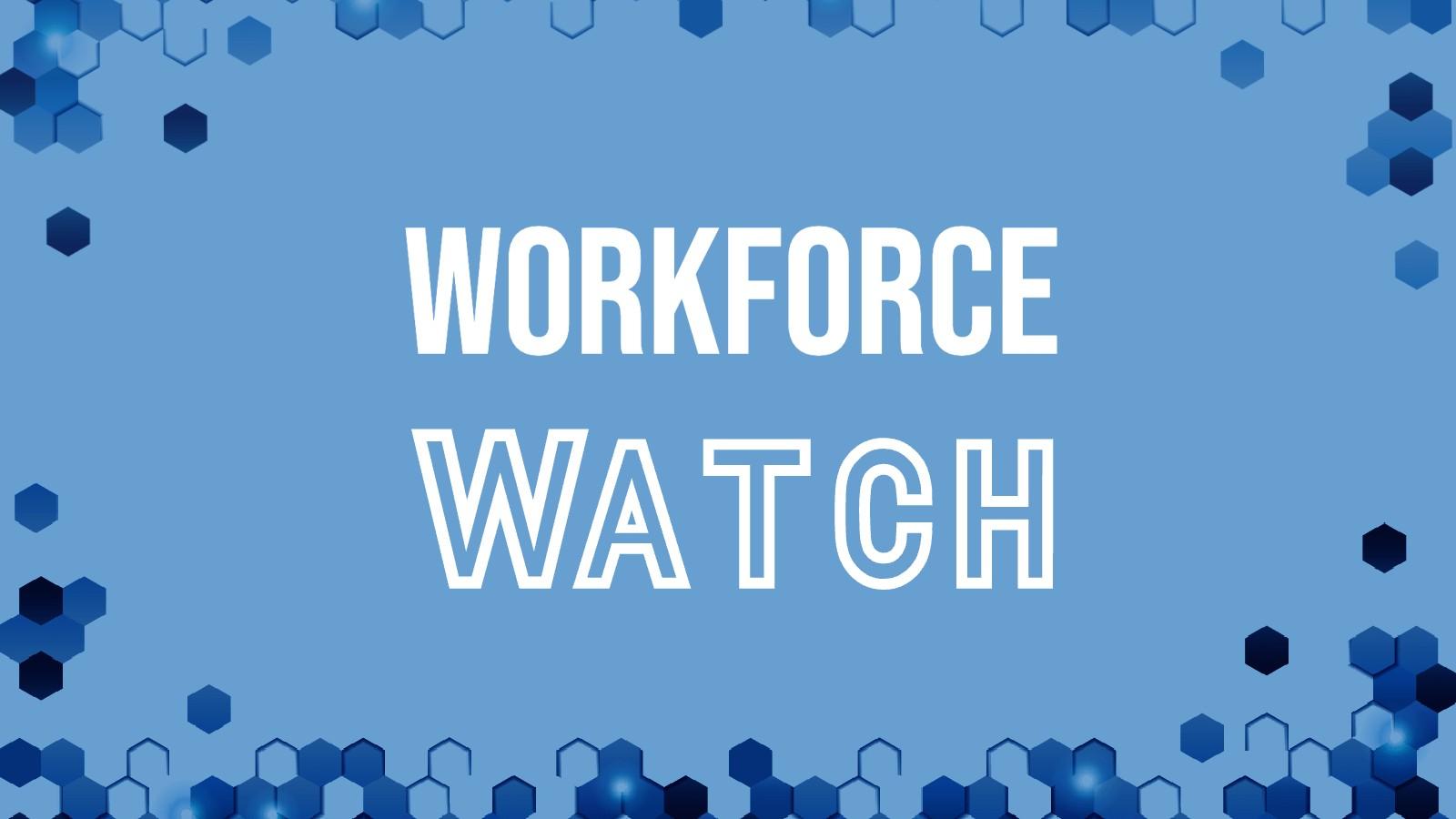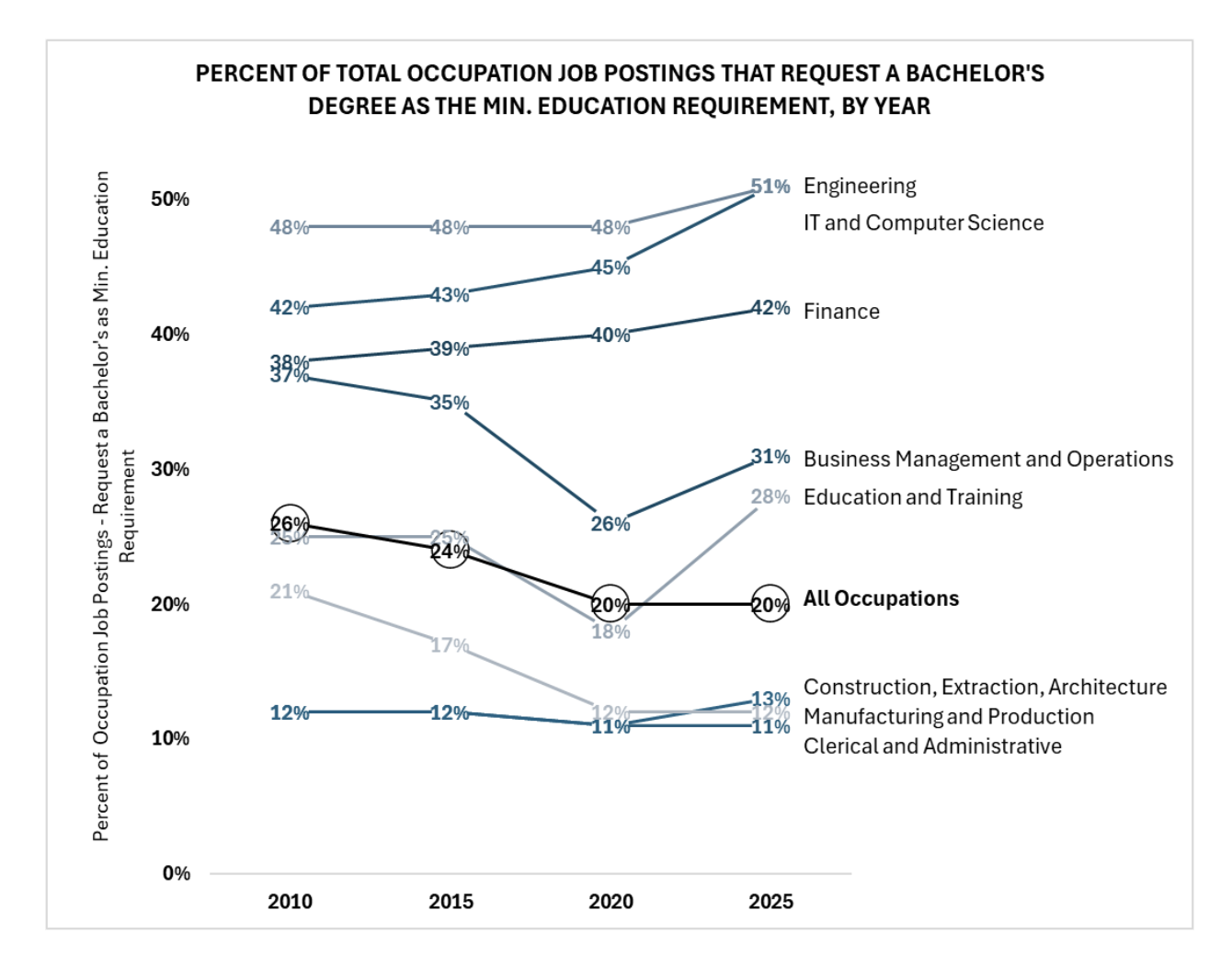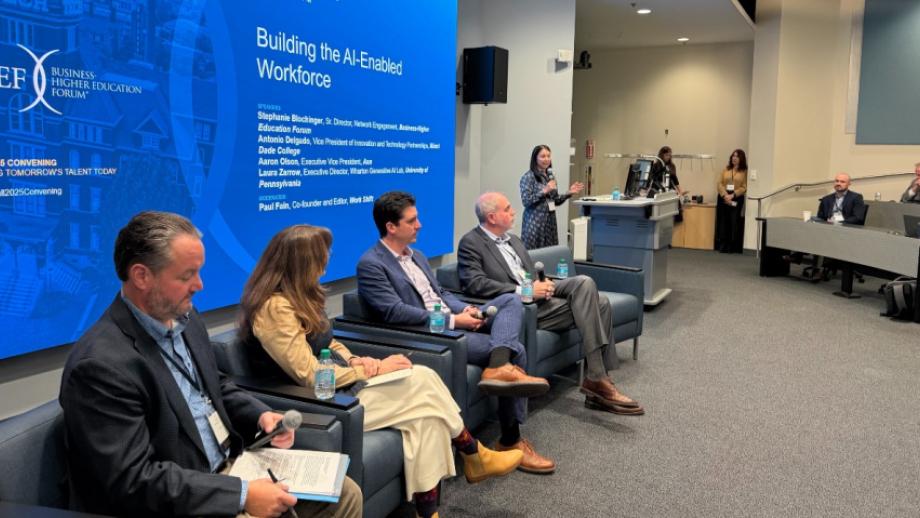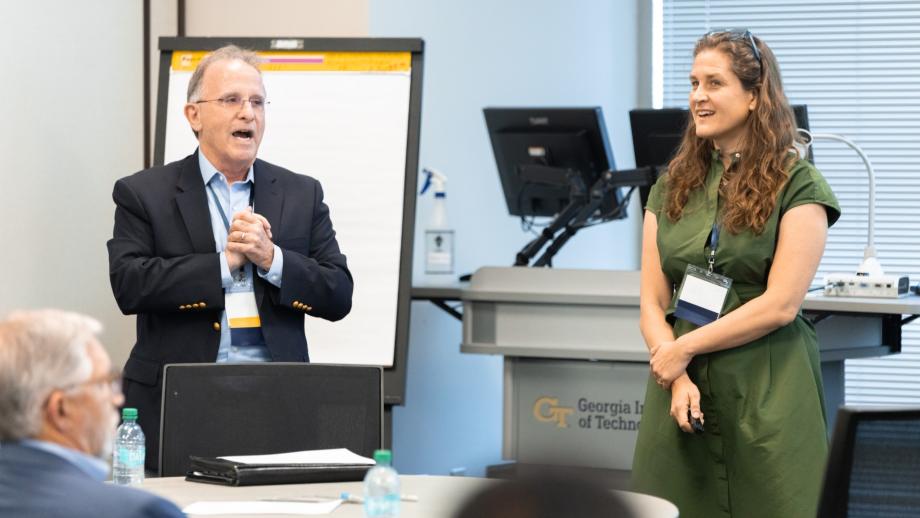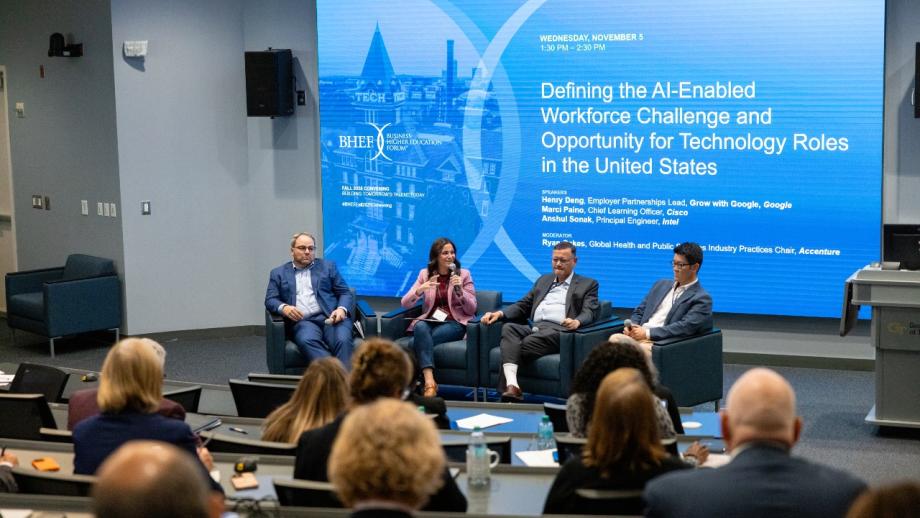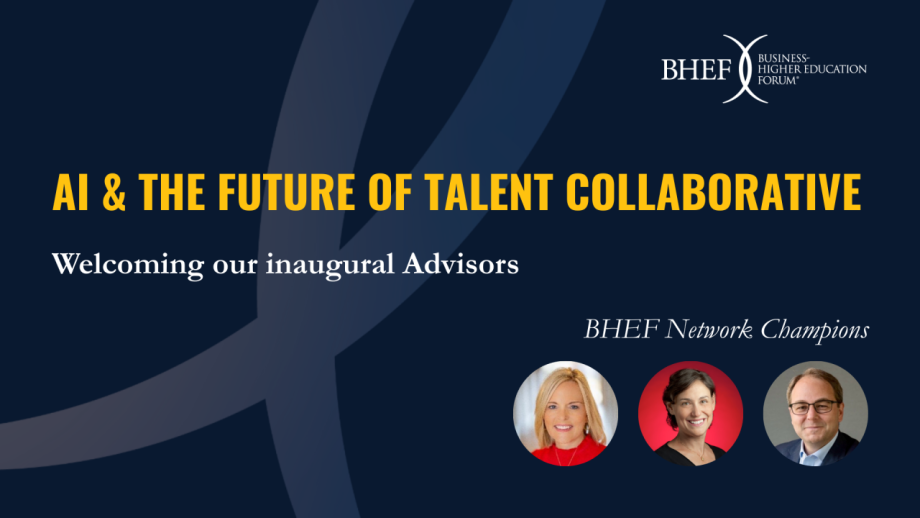State governments and companies claim to be moving away from degree requirements, but what do labor market trends reveal? Overall, postings over the last ten years show that across all sectors and roles, the degree is being cited less frequently as a requirement in job postings. Our analysis of job postings shows differential dynamics across sectors and occupations:
Declines in Degree Requirements: Fields like manufacturing and production show a steady drop in degree requirements since 2010. For instance:
- Production Managers: 39% of postings require a degree (2010) → 28% (2025)
- Machine Operators/Technicians: 6% (2010) → 2% (2025)
Consistency in Non-Degree Fields: Occupations like clerical/administrative and construction have maintained stable, low degree requirements (~11%) for over 15 years.
Growth in Degree Demand: High-paying fields like IT, Finance, and Engineering continue to increase their share of jobs requiring bachelor’s degrees in postings, despite pronouncements otherwise.
Takeaway: While degree requirements remain vital for many lucrative careers, automation and changes in job demand are reshaping expectations in certain fields. We’ll be tracking the impact of skills-based approaches and AI and supporting our partners in aligning skills and industry needs.
